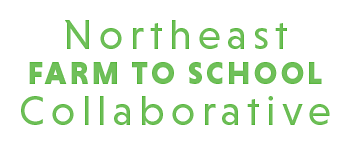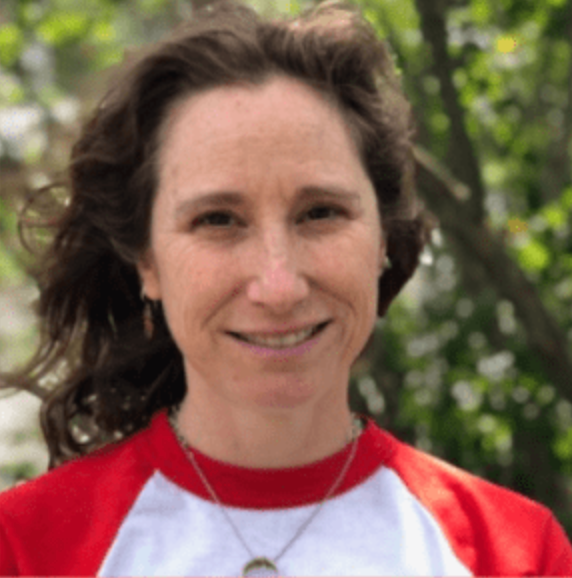
GET IN TOUCH
Project Manager
Dana Stevens
Farm to Institution New England
ADVISORY TEAM
Stephanie Bush (RI)
Farm Fresh RI
Cynthia Greene (VT)
Shelburne Farms/VT FEED
Simca Horwitz (MA)
MA Farm to School
Dawn L Gordon (ME)
MCD/Healthy Kids Healthy Future
Jiff Martin (CT)
UConn Extension
Stacey Purslow (NH)
NH Farm to School
Betsy Rosenbluth (VT)
Shelburne Farms/VT FEED
Marissa White (ME)
MCD/Healthy Kids Healthy Future
We are growing strong and equitable farm to early childhood programs across New England
Project Information
Improving access to healthy, regional, culturally appropriate foods, nutrition education, and hands-on agricultural experiences for our youngest eaters (Farm to EC) is an essential strategy for addressing the systemic, race-based inequities built into both our food and childcare systems. This project aims to further food justice in our region by supporting the development and expansion of equitable Farm to EC programs in each state. We do this through:
Building regional connectivity between interest holders
Convening a New England Farm to EC project Community of Practice (CoP)
Conducting research on Farm to EC in New England (check out our regional Farm to EC Ecosystem Assessment below!)
Providing Farm to EC professional development and funding opportunities
This project is coordinated by the Northeast Farm to School Collaborative and Farm to Institution New England. This material is based upon work that is supported by the Food and Nutrition Service, U.S. Department of Agriculture.
*We acknowledge that the place commonly referred to as “New England” is located on the occupied and/or unceded traditional lands and waters of indigenous peoples, and that we have a responsibility to help make that truth visible and to support efforts toward indigenous sovereignty and well-being.
Farm to Early Childhood in New England: An Ecosystem Assessment
The Northeast Farm to Early Childhood Project Community of Practice is excited to announce the publication of “Farm to Early Childhood in New England: an Ecosystem Assessment.” This illustrated and interactive overview of the farm to early childhood space across the six New England states was designed to help regional interest holders better understand the early childhood sector and to identify the key opportunities for expanding farm to early childhood activity across the six New England states.
Want to learn more?
Read more about the research process over at the FINE blog
Watch the webinar recording (below) with Farm to EC COP members, researcher Hannah Leighton, and project lead Dana Stevens. Presenters give an overview of the New England Farm to Early Childhood Project, take a deeper dive into the recommendations and opportunities identified in the ecosystem assessment, and lead a strategizing session about how to move this work forward in New England.
Project Community of Practice

Overview
The New England Farm to EC community of practice (CoP) is a leading and advising community of food systems leaders from each of the New England states that are working together to expand opportunities for Farm to EC across the region. Members are responsible for advising on all components of the New England Farm to EC project, sharing resources and strategies for creating more regional and state-level opportunities for Farm to EC, and representing stakeholders from their states. The original committee of practice is tasked with laying the groundwork for more participants to join in phase 2 of the project.
2023-24 Work
LEARN & SHARE: CoP members identify and share resources including skills, tools, and ideas for addressing challenges and strategizing opportunities for expanding Farm to Early Childhood in each state.
ADVISE: CoP members provide input and guiding expertise on Farm to Early Childhood research and the design and implementation of Farm to EC Professional Development opportunities.
ENGAGE & REPRESENT: CoP members act as liaisons between the group and stakeholders in their state, including: disseminating information, representing practitioner needs and challenges, and engaging Farm to EC stakeholders in their state as opportunities develop.
STRATEGIZE: CoP members outline strategies for phase 2 of the project, identifying major objectives, partnerships, and funding opportunities to continue building support for Farm to EC work taking place in the region.
2023-24 Community of Practice Members
Click images for bios.
Why Farm to
Early Childhood?

Our communities benefit from strong and equitable Farm to Early Childhood programs.
BUILD HEALTHY EATING HABITS
Research shows that ninety percent of our brains are developed by age five; nutrition is a key determinant of neural health; and eating habits and taste preferences are developed young. Children benefit from repeated exposure to healthy food, yet parents are wary of spending money on food that their children may not eat. Early exposure to local and healthy food at EC programs is a proven means to foster positive eating habits which carry into home settings.
GROW EQUITY + FOOD SECURITY
Historically marginalized BIPOC communities are more likely to experience food insecurity, due to structural and systemic factors. Low income and Asset Limited, Income Constrained, Employed (ALICE) families also spend a greater percentage of their income on childcare and are more vulnerable when there are disruptions to those childcare systems. Farm to EC provides an important structural strategy to reduce food insecurity and build food sovereignty.
SUPPORT OUR FARMERS
Local food producers are more prepared than ever to meet the needs of consumers seeking healthy food, yet they still need help connecting with EC practitioners and the families they serve.
SUPPORT OUR CHILDCARE PROVIDERS
There are few Farm to EC professional development opportunities, and EC programs are often not eligible for Farm to School (FTS) grants that target K-12 only. Furthermore, while various state agencies and community partners in New England may support individual Farm to EC activities, the region as a whole lacks a mechanism for sharing resources, strategies and models both within and across the states, and communication of Farm to EC as a cohesive, high-quality early childhood initiative.
















